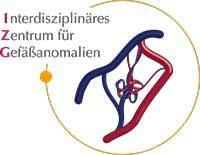Colon Cancer — Embolization or Chemoembolization: treatment in the Best Hospitals in the World
Treatment prices are regulated by national law of the corresponding countries, but can also include additional hospital coefficients. In order to receive the individual cost calculation, please send us the request and medical records.

Department of Interventional Radiology
The Department of Interventional Radiology offers the full range of imaging examinations, as well as innovative image-guided minimally invasive techniques for the treatment of tumors, vascular diseases and internal pathologies (for example, CT, MRI, PET-CT, SPECT). The department's doctors have deep knowledge and colossal experience in the field of interventional radiological methods of treatment, which represent an excellent alternative to open surgical interventions. Despite the high level of technical equipment and the presence of advanced computerized systems, the focus is always on the person with his individual needs. Compliance with current clinical protocols and high professionalism of the department's specialists contribute to the successful clinical practice, as well as the reputability of the department among the best medical facilities of this kind in Germany.




Department of Interventional Radiology and Neuroradiology
The Department of Interventional Radiology and Neuroradiology offers a full range of advanced imaging diagnostics and minimally invasive treatments on both an inpatient and outpatient basis. The department has state-of-the-art medical equipment for imaging tests such as X-ray, computed tomography, magnetic resonance imaging, digital subtraction angiography, and mammography. The medical facility also performs many highly effective interventional therapeutic procedures under image guidance, which in many cases allow patients to avoid traumatic open surgery. For example, the department successfully performs local fibrinolysis, thrombectomy, percutaneous transluminal angioplasty, hemostasis, transarterial chemoembolization, uterine artery embolization, and other procedures. The department's neuroradiologists specialize in brain and spinal cord imaging and the treatment of central nervous system disorders. Interventional neuroradiology focuses on the treatment of carotid artery stenosis, brain aneurysms, arteriovenous malformations, dural fistulas, subdural hematomas, brain tumors, skull base and spinal tumors, and chronic back pain. The department's medical team has extensive clinical experience in their areas of expertise. The specialists are guided by the recommendations of the German Society for Interventional Radiology and Minimally Invasive Therapy (DeGIR) and the German Society for Neuroradiology (DGNR), which helps to achieve the best results.






Department of Adult and Pediatric Diagnostic, Interventional Radiology, Neuroradiology
The Department of Adult and Pediatric Diagnostic, Interventional Radiology, Neuroradiology is one of the best institutions of its kind in Germany and offers patients the full range of radiological studies and imaging-guided minimally invasive therapy. The department’s scope of tasks also includes imaging diagnostics in children of all age groups, detection and invasive treatment of cerebral vascular pathology (neuroradiology). Patient care is provided both on an inpatient and outpatient basis.






Colon cancer is one of the most common malignant tumors. It is successfully treatable. Early-stage cancer can usually be cured with surgery. Even in end-stage cancer doctors use therapies that help control the disease for many years. One of the methods used in advanced cancer is called embolization. It is most often used to suppress metastases in the liver, less often to stop bleeding from intestinal vessels.
Content
- What is embolization and chemoembolization
- When is embolization used for colon cancer
- Hepatic artery embolization for colon cancer
- Intestinal vascular embolization
- Embolization results
- Combination of embolization with other methods
- Why it is worth undergoing embolization abroad
- Treatment in Europe with Booking Health at an affordable price
What is embolization and chemoembolization
Embolization is a blockage of blood vessels.
The therapeutic effect of the method is based on excluding the movement of blood through the arteries feeding the tumor. As a result, its ischemic necrosis occurs, which means that the tissues that do not receive oxygen quickly die off.
In terms of efficiency and safety ratio, the best clinical outcome is provided by superselective embolization. It involves the introduction of emboli into small-caliber vessels located as close to the tumor as possible. In this case, minimal damage to the healthy tissues is ensured, but the neoplasm itself is damaged as much as possible.
Chemoembolization is a treatment option for patients with colon cancer, in which chemotherapy agents are added to the emboli. They enter the tumor in large numbers, but practically do not cause any systemic side effects. Depending on the chemoembolization technique and the drug used, the effect of the chemotherapy drug lasts for several days or weeks.
The treatment procedure is minimally invasive. The doctor gains access to the blood vessels feeding the tumor through an artery in the patient's leg or arm. A small incision in the groin, armpit, or forearm is sufficient to provide this access. Since the trauma rate of therapy is minimal, the patient does not have to recover for a long time, and the length of a hospital stay usually does not exceed 1 week.
Embolization can rarely cause complications. When compared with other cancer treatments, patient tolerance is good. During the first 2-3 days, some patients develop postembolization syndrome. It manifests itself in pain and an increase in body temperature, which is associated with the death of tissues cut off from the blood supply. Other clinical symptoms are also possible: nausea, vomiting, jaundice. The patient receives drugs that lower body temperature and relieve pain. Nonsteroidal anti-inflammatory drugs are usually sufficient. Narcotic analgesics are used very rarely.
When is embolization used for colon cancer
For patients with colon cancer, embolization is not considered a standard treatment option. Cancer is usually treated with surgery. Moreover, at stages 1-2, the operation is not supplemented with chemotherapy or radiation therapy.
Embolization or chemoembolization is used primarily in patients with stage 4 cancer, in one of two cases:
- Development of metastatic foci of colorectal cancer in the liver. In this case, hepatic artery embolization is performed.
- Unresectable primary intestinal tumor that is complicated by bleeding.
Colon cancer with severe bleeding in patients is rare, and in most cases this is eliminated by endoscopic methods: the endoscope is inserted through the anus into the colon and the bleeding vessel is "cauterized". Therefore, in clinical practice, most embolization procedures for the treatment of colon cancer are performed in patients with metastatic lesions of the liver.
Hepatic artery embolization for colon cancer
At stage 4 colon cancer, distant metastases appear. They are most often found in the liver. This is due to the fact that blood flows from the colon through the portal vein system. Cancer cells settle in the liver and give rise to the growth of new tumors.
Colorectal cancer metastases in the liver are 10-20 times more common than liver cancer. They appear in 20-50% of patients with colon cancer. Moreover, in every fourth patient, stage 4 of the disease is established only on the basis that metastases appear in the liver. At the same time, other metastatic foci in the patient may be absent, and the primary tumor is not always large.
The patient's survival largely depends on how effectively liver metastases are controlled. Colon resection is usually the first treatment. The doctor removes part of the organ along with the tumor. Whenever possible, liver metastases are also surgically removed, as this treatment option provides the best survival rates for patients.
However, most liver metastases are unresectable. Therefore, other methods are used to control them. Most often, these are ablation or chemoembolization.
Ablation is the destruction of metastatic foci with various types of energy. The radiofrequency or microwave methods are the most common. A probe is inserted into the liver tissue, and the metastases are destroyed by high temperature. Nonetheless, the possibilities of the method are limited. It is not used for large metastases. Even small metastatic foci cannot always be destroyed if they are located near large vessels or bile ducts.
Therefore, the most common method of dealing with liver metastases is hepatic artery chemoembolization. It allows destroying neoplasms of almost any size and location. The treatment procedure is minimally invasive and safe.
The liver has a dual source of blood supply. The organ receives 75% of blood from the portal vein and 25% from the hepatic artery, but metastases of a malignant tumor feed on arterial blood for 90%. Therefore, when the hepatic artery is closed, the healthy liver parenchyma is minimally damaged, while the metastases are reduced in size by 50-90%.
Advantages of the method:
- Minimally invasive treatment.
- The method can be combined with any methods of therapy.
- It can be performed multiple times.
- The first procedure is effective in almost 100% of cases.
- It does not significantly impair liver function in most patients.
- It can be used even with large metastases or metastases located near large vessels.
Intestinal vascular embolization
Intestinal vascular embolization is rare. As a rule, the only purpose of this procedure is to stop bleeding.
Embolization is used without regional chemotherapy. The lumen of the vessels can be closed with spirals, alcohols, adhesive compositions, etc. Depending on where the tumor is located and where the bleeding started from, these can be different arteries. To find out its source, contrast-enhanced radiation diagnostics is used.
Unlike rectal cancer, colon cancer rarely causes severe bleeding. Even at the end-stage, only one in 10 patients suffers from it. Moreover, only in one out of 50 patients bleeding leads to massive blood loss.
Embolization is not considered the treatment of choice for stopping bleeding. Initially, the doctor seeks to stop it with an endoscopic method. However, with severe bleeding, this is not always possible: sometimes during a colonoscopy, a bleeding vessel is not visible, it is not possible to coagulate it, or a colonoscopy is generally impossible due to the presence of a tumor in the intestine. In such situations, they resort to embolization. It allows doctors to quickly stop bleeding even from large vessels in almost all patients.
Most often, microcoils are used to close the lumen of bleeding arteries. They initiate the formation of blood clots, which stop the movement of blood through the blood vessel. European doctors perform superselective embolization to minimize the risk of ischemia (oxygen deprivation) of the colon wall.
Embolization results
Intestinal vascular embolization is performed for palliative purposes. This procedure is not intended to increase the patient's life expectancy and local control of the tumor. Its task is only to relieve symptoms, prevent or stop life-threatening bleeding. The prognosis is determined not by the embolization procedure itself, but by other factors: how large the tumor is, at what stage the disease is, and whether surgical treatment is planned.
Most patients with a large intestine receive arterial chemoembolization (tace) for liver metastases. The procedure provides slightly worse clinical results in comparison with the surgical procedure, namely liver resection. However, if performed well, it is effective in all patients.
The average period without disease progression after arterial chemoembolization (tace) is 8-10 months. The two-year patient survival rate is 50-60%. Many will live more than 5 years if they receive good quality combination treatment.
The prognosis for patients with stage 4 colorectal cancer is determined not only by suppression of liver metastases. It is also important to control primary tumor and metastatic lesions in other areas of the body, such as the brain, lungs, and bones. Chemoembolization successfully restrains metastatic foci in the liver and can be repeated, if necessary.
Combination of embolization with other methods
To obtain the best clinical results in colon cancer therapy, patients in Europe receive combination therapy. Tumor foci can be affected by different methods – local and systemic.
With liver metastases, hepatic artery chemoembolization is often complemented by ablation. Doctors destroy small tumor foci with radiofrequency or microwave methods.
Some patients have metastatic lesions in the lungs or brain. Whenever possible, doctors remove them surgically. If surgery cannot be performed, then irradiation is used. Doctors abroad have at their disposal the very latest types of radiation therapy, which deliver radiation very accurately, with minimal damage to the healthy tissues surrounding the tumor.
Even in stage 4 colon cancer, surgery can be performed. The doctors remove part of the intestine with the tumor, and liver metastases are controlled using chemoembolization.
Cancer can spread to the peritoneum. This condition is called peritoneal carcinomatosis. Such patients undergo cytoreductive surgery. The doctor removes part of the colon and all tumor foci. The treatment abroad is often supplemented with intraperitoneal chemotherapy. It increases the risk of side effects, but significantly improves patient survival rates.
In end-stage cancer, most patients receive systemic therapy. In Europe, it is not only conventional cytostatic chemotherapy, but also targeted therapy and immunotherapy.
Why it is worth undergoing embolization abroad
Many patients with colon cancer travel abroad to receive more effective treatment. In the developed countries of Europe, the very latest therapeutic methods are used, and therefore even in case of end-stage cancer, the life expectancy of patients can reach 5-10 years.
There are several reasons why you should undergo chemoembolization in Europe:
- Highly accurate diagnostics can detect all cancer metastases in order to perfectly plan treatment.
- Chemoembolization with drug-saturable microspheres is preferred – this is a new technique that provides better clinical results, and at the same time has less toxicity compared to oil chemoembolization.
- Whenever possible, doctors try to treat patients with superselective embolization, since the technique is safer – it involves closing the lumen of small vessels as close to the tumor as possible.
- Radial access (through the radial artery) is preferred to minimize the risk of complications.
- For colon cancer treatment in Europe, different methods of treatment can be combined: surgery, ablation, chemoembolization, radiation therapy, systemic drug therapy.
The best European hospitals have state-of-the-art equipment. They are staffed by doctors who have a high reputation in the world. Therefore, in Europe, the best results are achieved in the fight against colon cancer.
Treatment in Europe with Booking Health at an affordable price
To undergo cancer treatment in one of the European hospitals, please use the services of Booking Health. On our website, you can see the cost of treatment for colon cancer in different hospitals, compare prices and book a medical care program at an affordable price. The cost of embolization or chemoembolization for colon cancer is between 24,340 EUR and 41,200 EUR. Arterial embolization in European hospitals will be easier and faster for you, and the cost of treatment will be lower.
Please leave a request on our website. Our employee will contact you and advise you about treatment in Europe. Booking Health will take care of the organization of your trip. We will provide the following benefits for you:
- We will choose a hospital for treatment in Europe, whose doctors specialize in the treatment of metastatic colon cancer.
- We will help you overcome the language barrier, establish communication with your attending physician.
- We will reduce the waiting time for the start of the medical care program and book a doctor's appointment on the most suitable dates.
- We will reduce the price. The cost of treatment in German hospitals will be lower due to the lack of additional coefficients for foreign patients.
- We will take care of all organizational issues: documents for entering the country, transfer from the airport, hotel, interpreter, etc.
- We will prepare a cancer treatment program and translate medical documents. You do not have to repeat the previously performed diagnostic procedures.
- We will provide communication with the hospital after treatment in Europe.
- We will organize additional diagnostic examinations and treatment in European hospitals, if necessary.
- We will buy medicines for cancer therapy abroad and forward them to your native country.
- We will help you keep in touch with the hospital and the doctor after treatment in Europe
You will receive treatment from the best doctors in the world. The Booking Health employees will help reduce the cost of treatment for cancer and solve all organizational issues, and you will only have to focus on restoring your health.
Authors: Dr. Nadezhda Ivanisova, Dr. Sergey Pashchenko

